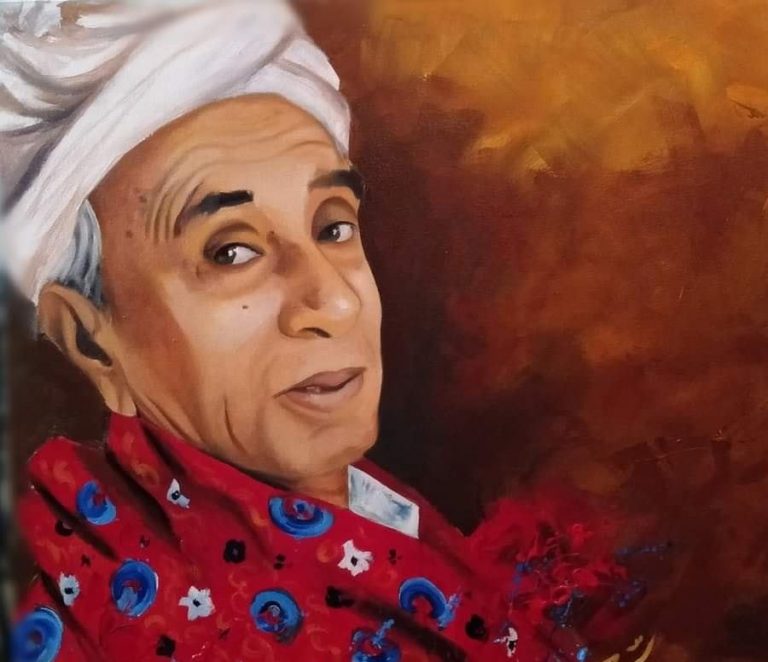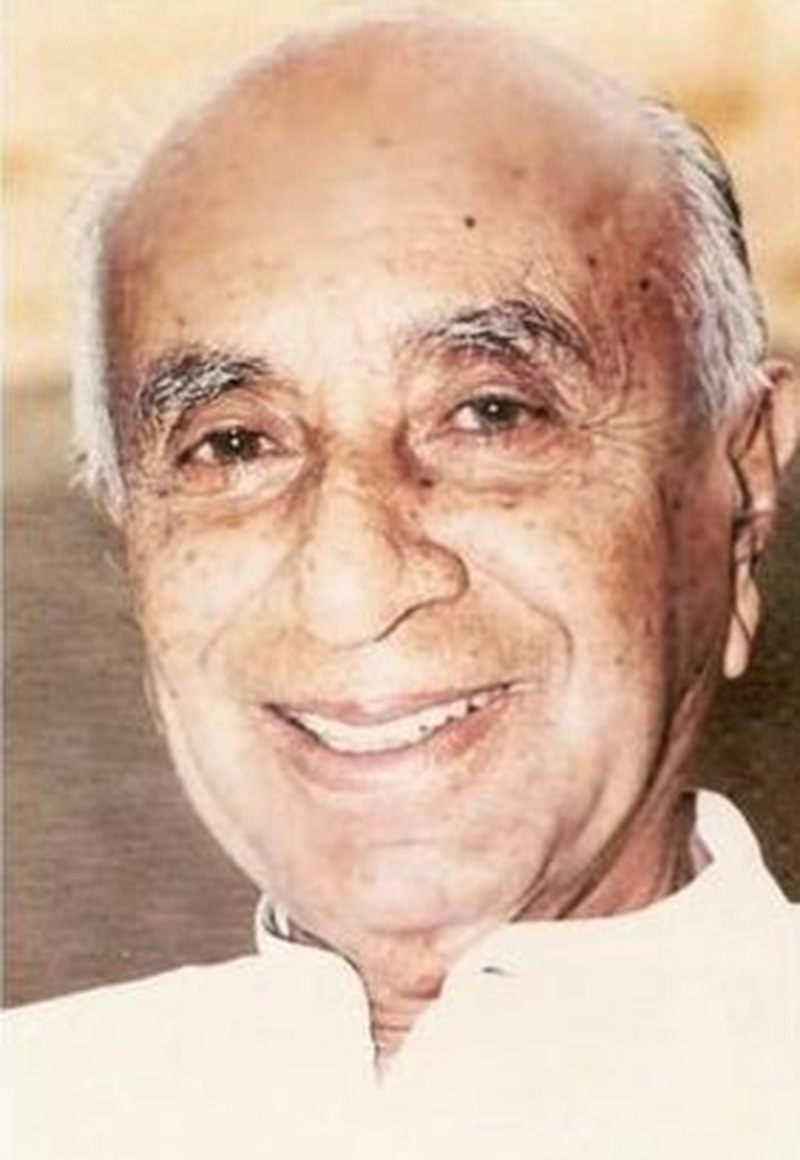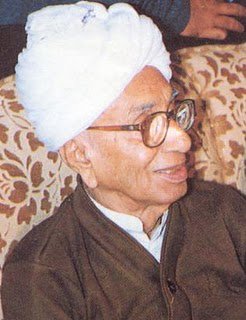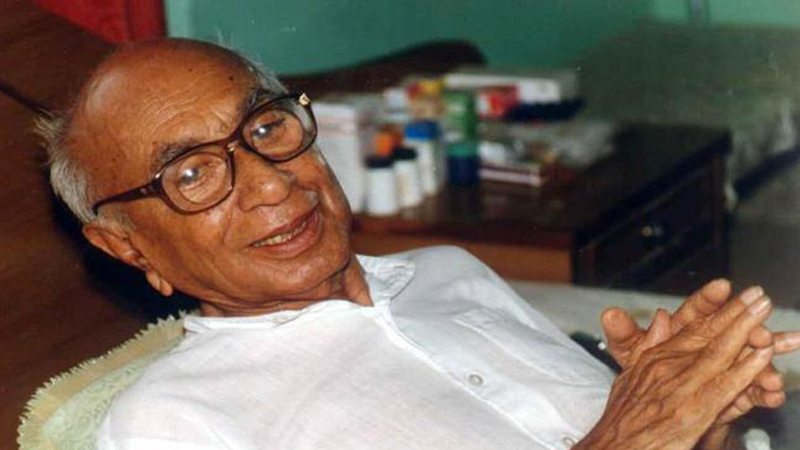
Some 96 books were published for and against the political philosophy of Syed during his life and after the demise.
Zaffar Junejo
Let me not hold gratitude for a long, and thank Dr. Azad Qazi for his much needed work – explanatory bibliographies on GM Syed. These titles remind me my PhD days’ introductory data management sessions at the University of Malaya, Malaysia. Until now, I recall, one of the workshops was about the preparation of bibliographies. Our lady instructor defined the term bibliography that it is a list of published documents (in most of the cases), and these documents could be articles and books. She had said, “Academically, authentic bibliography is called, ‘enumerative bibliography”. However, she added that it is the purview of the bibliographer to make it detailed through a chosen parameters. Academically, I am sure that Dr. Qazi’s bibliographical books on GM Syed would help scholars, who are interested to work on GM Syed’s life, intellectual development, and his response to political events.
In both books, the readers would find some sentences about the content, its credibility and usefulness. The first book, Sawanhi Tashrehi Bibliography – Saeen GM Syed Ja Kitab (Biographical Explanatory Bibliography – GM Syed’s Books). The author has mentioned 44 books. The listed books fall into two sections: books published in the lifetime of GM Syed, and the others published after his death. If we accept this division, then 32 books were published in GM Syed’s life, and 12 books came out after his death. The author’s footnotes help readers to understand the context of the publication of the particular book. But the author has taken steps ahead, and quoted GM Syed that his few books were not written by him, although those were published in his name. The case in point is the booklet, entitled Sindh and Separation of Judiciary from Executive, published in 1938. The author elaborates that it is believed that it was GM Syed’ book. But GM Syed revealed that Pir Ali Muhammad Shah Rashidi realized the issue of execution and judiciary in Sindh’s civil administration. He wrote the book and insisted its publication. GM Syed quoted Pir Ali Muhammad Shah Rashidi’s letter, dated 9th September, 1937: ‘I am writing a book on the administration and the judiciary. But the problem is of its publication. To write a book is convenient for me, but its publication is a challenge.’ GM Syed in his book ‘Khat Aeen Mazmoon’ (Letters and Essays) again quotes his another letter dated 28th January, 1938, where he (Rashidi) had enquired about the status of a book’. Another book ‘Hindustan Ja Musliman Aeen Pakistan’ (Indian Muslims and Pakistan) is also assumed that it was authored by GM Syed. In fact, it was an anthology of articles published in Eastern Times, a Punjab based newspaper. These articles were published from January 1940 to (26th April) 1940 in support of Pakistan Movement. Later on, in May 1941, the anthology was translated into Sindhi, and GM Syed’s name was mentioned on its title.
 I think, GM Syed is only politician, whose considerable number of books were published without print line or in popular printing language came out through ‘butter-copy or tracing-paper’ technique. In this regard, we could quote publication of ‘Jadeed Siyast Ja Na Nao Ratan’ (Nine Pillars of Modern Politics). Mr. Noor Muhammad Palejo published it in 1967. Lately, in 1986, its 2nd edition was issued by Thori Publication, Karachi. At that time, there was the Martial Law, therefore, it was printed under the fake name Thori publication, and butter-copy technique was used to print it. In the Martial Law days, Sindh was politically active, and nationalist and leftist parties had their study circles. The study circles used to prepare their syllabus. In doing so, they chose and pick appropriate articles, and chapters based on their criteria. In this case, an example of the Sindh Dost (Friends of Sindh) group could be quoted, which took some material from GM Syed’s book ‘Pakistan Men Ziban Jo Masealo Aen Sindhi Zaban’. The group took some parts of it and published with a title of ‘Sindhi Zaban Jo Masealo’. It was also printed through butter-copy-technique.
I think, GM Syed is only politician, whose considerable number of books were published without print line or in popular printing language came out through ‘butter-copy or tracing-paper’ technique. In this regard, we could quote publication of ‘Jadeed Siyast Ja Na Nao Ratan’ (Nine Pillars of Modern Politics). Mr. Noor Muhammad Palejo published it in 1967. Lately, in 1986, its 2nd edition was issued by Thori Publication, Karachi. At that time, there was the Martial Law, therefore, it was printed under the fake name Thori publication, and butter-copy technique was used to print it. In the Martial Law days, Sindh was politically active, and nationalist and leftist parties had their study circles. The study circles used to prepare their syllabus. In doing so, they chose and pick appropriate articles, and chapters based on their criteria. In this case, an example of the Sindh Dost (Friends of Sindh) group could be quoted, which took some material from GM Syed’s book ‘Pakistan Men Ziban Jo Masealo Aen Sindhi Zaban’. The group took some parts of it and published with a title of ‘Sindhi Zaban Jo Masealo’. It was also printed through butter-copy-technique.
GM Syed wrote each book with the sole purpose to serve Sindh. In doing so, he never thought about readers’ reactions.
GM Syed’s some books in Sindhi publishing world are ‘books-in-permanent-circulation.’ In this connection, we can quote ‘Pagham-e-Latif’. It was first published in 1952 by Adara-e- Insaniat, Hyderabad. Its 15th edition came out in 2021 by Roshni Publications, Kandyaro/Hyderabad. The first English translation of the same book came out, with a title of ‘Shah Latif and His Message’. The Saeen Publisher, Sehwan printed it in 1996. Another book, which is also being regularly published is ‘Janab Guzariam Jin Seen’ (With Whom I spent My Days). It was published in 1967 by Sindhi Adabi Board, Hyderabad. Afterwards, numerous editions were published by Sindhi Adabi Board and private publishers. Its first Urdu edition came out with the title of ‘Mere Dost Mere Sathi’. Its publisher was Takhliqiyat, Lahore. Another book, which also falls into the same category is Jee’an Ditho Aa Moo’n (As I Have Witnessed), published by Noor Muhammad Palejo in 1968. Its Urdu translation came out in 1970, with title of ‘Jaisa Maine Dekha’. It was first edition in Urdu language, as well as first edition of Adarah-e-Farogh-e-Insaniat. Another publisher Syed and Syed, Karachi brought Urdu editions – 1st edition came in 1972, and 2nd and 3rd editions were out in 1975 and 1996 respectively. In 1986, its first English translation came out with title of ‘Religion and Reality’, published also by Syed and Syed, Karachi. In the same year, Saeen Publisher, Sehwan also brought English translation, with a title of ‘My Vision of Religion’. Again, the Fiction House, Lahore brought an edition of ‘Religion and Reality’ in 2012. Roshni publication, Kandyaro/Hyderabad in 2020 released 31st edition (Sindhi) of Jee’an Ditho Aa Moo’n’. Another book, which is still in print from its year of first publication is Dayar-e-Dil Aeen Dastan Muhabat. It was first published by Sindhu Press, Adarash Nagar, Bombay (now Mumbai), India in 1973. It was GM Syed’s first book that compelled readers to make its photocopies. These copies were roaming around in homes, and hostels, and it made a dent into orthodox sections of the society. It remained part of the study circle of 1980s, and almost all progressive readers accepted its influence. In 2021, its 14th edition was printed by Roshni Publication, Kandyaro/ Hyderabad.
On average, GM Syed’s majority of titles have gone to run into 10th editions. In this regard, we can count ‘Pakistan Je Mazi Hal Aeen Mustaqabl Te Taerana Nazar’. It was first published in 1973, and in 2010 its 10th edition was printed by Indus Academy, Karachi. Likewise, in 1974, Sindhi Culture was published by Naeen Sindh Publication, Karachi, and in 2014 its 10th edition was published by Gulshan Publication, Hyderabad.
 As I have mentioned in earlier paragraphs that Dr. Azad Qazi’s another book is Sawanhi Tashrehi Bibliography – Saeen GM Syed Te Likhiyal Kitab (Biographical Explanatory Bibliography – Books Written about GM Syed). The book lists that till 2022, a total of 96 books were published. These books are either edited or compiled. In addition to that, some magazines also issued special editions. Again, in terms of time line these books fall into two categories – books published in life of GM Syed, and others printed after his death. If we go through chronology, then first comes Hakeem Atta Muhammad’s booklet ‘Syed Ji Siyasat Jo Tazo Chakar’ (Recent Turn of Syed’s Politics). The book didn’t contain the print line. However, book’s content suggests that it was written before 1940. However, last book that was published in life of GM Syed was authored by Mithal Mallah with a pen name of Janib. A quick look at the list of published books from 1940 to 1995 reveals that a total of 38 books were written on him and about his ideas. Out of it 7 books were written in Urdu, and the first booklet was of Syed Zaheer-ul-Islam, with a title of ‘GM Syed Aor Muslim League Qiyadat’. It was published in 1946. The author has commented on GM Syed’s differences with the leadership of the Muslim League, and has discussed the background of the formation of the progressive Muslim league. Syed Intzar Hussain’s book ‘Beesween Sadi Ka Siyasi Mujadid’ came out in 1991. None of English book came out in the span of 55 years.
As I have mentioned in earlier paragraphs that Dr. Azad Qazi’s another book is Sawanhi Tashrehi Bibliography – Saeen GM Syed Te Likhiyal Kitab (Biographical Explanatory Bibliography – Books Written about GM Syed). The book lists that till 2022, a total of 96 books were published. These books are either edited or compiled. In addition to that, some magazines also issued special editions. Again, in terms of time line these books fall into two categories – books published in life of GM Syed, and others printed after his death. If we go through chronology, then first comes Hakeem Atta Muhammad’s booklet ‘Syed Ji Siyasat Jo Tazo Chakar’ (Recent Turn of Syed’s Politics). The book didn’t contain the print line. However, book’s content suggests that it was written before 1940. However, last book that was published in life of GM Syed was authored by Mithal Mallah with a pen name of Janib. A quick look at the list of published books from 1940 to 1995 reveals that a total of 38 books were written on him and about his ideas. Out of it 7 books were written in Urdu, and the first booklet was of Syed Zaheer-ul-Islam, with a title of ‘GM Syed Aor Muslim League Qiyadat’. It was published in 1946. The author has commented on GM Syed’s differences with the leadership of the Muslim League, and has discussed the background of the formation of the progressive Muslim league. Syed Intzar Hussain’s book ‘Beesween Sadi Ka Siyasi Mujadid’ came out in 1991. None of English book came out in the span of 55 years.
GM Syed passed away on 25th April, 1995, and afterwards 58 books are published. Interestingly, first book was published in 1996, and again, it was authored by Mithal Mallah, with his pen name Janib. In this section till 2022, 4 books in Urdu, and 3 books in English are published. The first book in Urdu was of Khadim Hussain Soomro with a title of ‘GM Syed Adreshi Insan Se Otar Tak’ (GM Syed: from an idealist to sage), published in 1999. The last book in Urdu till now is ‘GM Syed Aor Jeay Sindh’, authored by Mir Alam Mari, published in 2014. Likewise, the first book in English was authored by MS Korejo, published by the Oxford University Press, Karachi in 2000 with the title of ‘Syed: An Analysis of His Political Perspective’. Thus, we can say that till 2022, the last book in English was of Khadim Soomro, published in 2004 with the title of ‘The Path Not Taken: GM Syed’s Vision and Valour in Politics’.
Let me respond a question that is usually asked: how GM Syed wrote such a number of books? I think it happened so, because he was well introduced to the Victorian ethics; he was reflective; and was influenced by MK Gandhi’s regular writing tradition.
The books written on GM Syed could be divided into two categories: books in praise of GM Syed, and to support his political views; books against him, and his ideas. There is no doubt that first individual, who criticized GM Syed’s political decision regarding support to Allah Bux Soomro was Hakeem Atta Muhammad. However, if we look at political parties, which wrote against GM Syed, then predominantly comes two names: Jamait-e-Islami, and Sindhi Awami Tahreek. Ironically, one was orthodox, and another was progressive. Jamait-e-Islami weaved their arguments in Islamic ideology, and ideology of Pakistan. But, Awami Takreek wrapped their arguments in progressive ideology, and class question. However, till now a question await response by the ideologues of Sindhi Awami Tahreek, and the leftists that how their unnecessary opposition to GM Syed served their ideology or supported Sindh’s cause.
 Before the ending this article, let me respond a question that is usually asked: how GM Syed wrote such a number of books? I think it happened so, because he was well introduced to the Victorian ethics; he was reflective; and was influenced by MK Gandhi’s regular writing tradition. I believe, all these factors influenced and prepared him to document his thoughts. If you look at his books, you would find that in sublime ways these are his lifelong experiences. These experiences subject to nature could be divided into three sections: His question to himself- who I am? How I have responded? And How I could serve my motherland and the world? At another level his writings are mediated between his private life and public life. Thus, I conclude my response that regular writing – it may be a diary or journal – helped him to write such a number of books.
Before the ending this article, let me respond a question that is usually asked: how GM Syed wrote such a number of books? I think it happened so, because he was well introduced to the Victorian ethics; he was reflective; and was influenced by MK Gandhi’s regular writing tradition. I believe, all these factors influenced and prepared him to document his thoughts. If you look at his books, you would find that in sublime ways these are his lifelong experiences. These experiences subject to nature could be divided into three sections: His question to himself- who I am? How I have responded? And How I could serve my motherland and the world? At another level his writings are mediated between his private life and public life. Thus, I conclude my response that regular writing – it may be a diary or journal – helped him to write such a number of books.
Allow me to end this article with words of Dr. Nabi Bux Baloach, quoted in Sawanhi Tashrehi Bibliography – Saeen GM Syed Te Likhiyal Kitab: ‘still we are in a fight with (GM Syed), and in a way in a confrontation with him. Therefore, it is nearly impossible to do justice to him in such a volatile situation. We need more time to settle and to evaluate his work. But, none should be hesitant to call him a great man of the 20th century.’
Before the end of this article, I assure you that GM Syed wrote each book with the sole purpose to serve Sindh. In doing so, he never thought about readers’ reactions. He was such a proceduralist and honest in writing that even he has not excused himself or justified himself in his political decisions, which proved undesired or unexpected. Let me say happy birthday to Saeen GM Syed, who was born on January 17, 1904.
___________________
 Dr. Zaffar Junejo is Research Scholar, Department of History University of Malaya, Malaysia. Mr. Junejo apart from scholarly contribution also writes for popular media. He could be accessed at: Email junejozi@gmail.com, Cell/WhatsApp +92 334 045 5333 Skype Zaffar.Junejo Facebook facebook.com/zaffar.junejo
Dr. Zaffar Junejo is Research Scholar, Department of History University of Malaya, Malaysia. Mr. Junejo apart from scholarly contribution also writes for popular media. He could be accessed at: Email junejozi@gmail.com, Cell/WhatsApp +92 334 045 5333 Skype Zaffar.Junejo Facebook facebook.com/zaffar.junejo